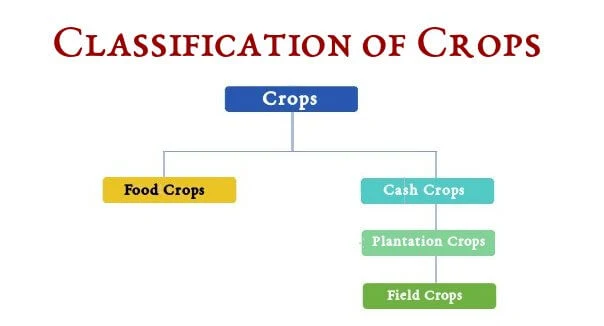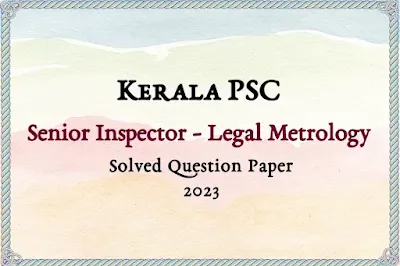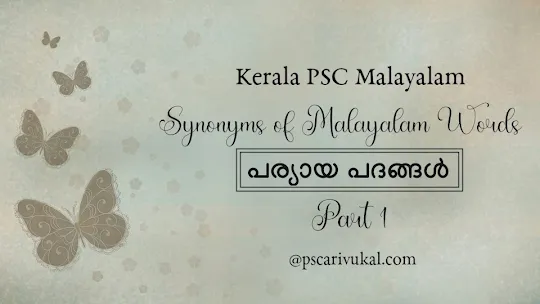Basic Facts
- First Indian to become a part of the British Parliament (House of Commons, 1892).
- First Asian to become a part of the British Parliament.
- Birth – September 4, 1825, Navsari, Bombay Presidency (present-day Gujarat).
- Family –
- Father – Navaroji Palanji Dordi.
- Mother – Manekbai.
- Wife – Gulab Bai.
- Epithets – Grand Old man of India, Indian Gladstone, The Father of Indian Politics and Economics, Unofficial Ambassador of India.
- Founder of –
- Satyavadi (Weekly; 1851),
- East India Association (London, 1866),
- London Indian Society (with W.C. Banerjee; 1865),
- Voice of India (Newspaper; with Behramji Malabari;1883),
- Rast Goftar (Newspaper; Fortnightly; with Kharshedji Cama;1851).
- Creator of Brain Drain Theory & Drain Wealth Theory.
- through his paper 'English Debt to India' (1867).
- First Indian to demand 'Swaraj(1906, Calcutta Session INC).'
- First Indian who calculated the National Income (1873).
- First Indian to become a College Professor.
- First Indian to become a Professor at the Elphinstone Institute, Bombay.
- Vice-president of the Bombay Presidency Association (1885).
- Professor at the University College, London (1856-1865).
- First Indian leader to discuss the poverty line in pre-independence India.
- Death – June 30, 1917, Mumbai
- Books –
- Poverty and Un-British Rule in India (1901).
Dadabhai Naoroji, the Grand Old Man of India
Early Life
Dadabhai Naoroji was born into an impoverished Parsi family in the Bombay presidency when colonialism had its strong grip on India.
From his childhood onwards, he was a brilliant student and got many scholarships. Through his merit, he was able to complete his college education in 1845 at Elphinstone College.
He began his career as a teacher and later became a professor of mathematics and natural philosophy at Elphinstone Institute. He was the first Indian to become a full professor at a British-administered institution of higher education.
Due to his dynamic personality and brilliance, a fellow professor hailed as 'The Promise of India.'
During this period he put many efforts to form the Students’ Literary and Scientific Society and argued for woman's rights. He also formed Rahanumai Mazdayasanan Sabha, a Parsi reformation association with Naoroji Furdunji, J.B. Wacha, and S.S. Bangali in the year 1851.
The Rahanumai Mazdayasanan Sabha's main aim was to educate and bring forward the Paris community. The fortnightly Rast Goftar (Persian name) was its voice.
He also opposed the lease renewal of the 1853 East India Company.
Life in Britain
In 1855, Dadabhai Naoroji moved to London and opened a cotton company 'Cama & Co.,' in partnership with Kharshedji Rustomji Cama and it became the first Indian commercial firm in the United Kingdom.
A year after in 1856, Dadabhai Naoroji was appointed as professor of Gujarati at University College in London.
He left the Cama & Co. in 1859 and opened his own commercial firm in London namely 'Dadabhai Naoroji & Co' along with Jamshedji Palanji Kapadia and Pestanji Ratanji Colah.
Because of his high ethics and morals in business, sadly Dadabhai Naoroji & Co went bankrupt.
Dinyar Patel in his book 'Naoroji: Pioneer of Indian Nationalism' gives us much insight into the life and times of Dadabhai Naoroji.
Dadabhai Naoroji later became involved in many social reform activities, delivered several speeches, and founded East India Association in London on December 1, 1866, to encourage understanding and friendship between the Indian and English people.
In 1873, he briefly returned to India and went to south Gujarat, Kathiawar, and Kutch to examine local poverty and presented a report before the Select Parliamentary Committee on East India Finance in London.
The British authorities, however, refused to publish it. In 1876, Naoroji presented this report to the Bombay division of the East India Association under the title 'Poverty of India.'
During this period, he accepted Maharaja Sayyajirao Gaekwad III of Baroda's offer to become Diwan of Baroda in 1873. But later resigned citing the difference between him and the Maharaja.
Naoroji was appointed by Governor Lord Reay to the Bombay Legislative Council in 1885 as vice president of the Association for Bombay's Presidency.
Dadabhai and Indian National Congress (INC)
- Co-founder of INC. (1885)
- Coined the name Indian National Congress (INC).
- Second President of Indian National Congress (Calcutta session;1886).
- First President of Indian National Congress from Parsi Community.
- First Indian to use the word 'Swaraj' for the first time (1906).
- The oldest person to preside over the INC.
- First person to become the President of the Indian National Congress three times.
- 1886 – Calcutta Session
- 1893 – Lahore Session
- 1906 – Calcutta Session - call for swaraj.
He arrived from England at the age of 81 to preside over the 1906 Calcutta Congress, when the battle in Congress between radicals and moderates erupted. Both parties were pacified.
It was during this historic session, he made the call for Swaraj, or self-governance for the first time.
British Parliament
Dadabhai Naoroji firmly believed that India's fight should be fought in the British parliament and decided to contest in elections.
- 1886 – Ran for the British Parliament from Holborn constituency but lost.
- In the course of a speech at Edinburgh on November 30, 1888, British Prime Minister Lord Salisbury, called Naoroji a “black man” and it created much controversy.
- 1892
- July 6 –
- Won the Central Finsbury seat on a Liberal Party ticket by three votes.
- Against Captain Frederick Thomas Penton.
- First British Indian MP.
- One of the main financial supporters, Maharaja Sayyajirao Gaekwad of Baroda.
- Muhammad Ali Jinnah, Chittaranjan Das & Florence Nightingale were the strong supporters of Dadabhai Naoroji in his elections.
- Being a member of the Parsi community, Dadabhai Naoroji refused to take the oath of allegiance on the Bible and did so upon his copy of holy Khordeh Avesta.
- August 9 –
- Delivered his maiden speech at the House of Commons.
- 1893 – helped to form an Indian parliamentary committee to attend to Indian interests.
- 1895 – Became a member of the royal commission on Indian expenditure.
- – Ran again for the British Parliament in 1895, but was unsuccessful.
In 1894, Mahatma Gandhi wrote to him "The Indians look up to you as children to the father. Such is really the feeling here."
Naoroji was a vociferous opponent of colonial economic policies in India. Naoroji, a moderate himself, served as a go-between for nationalist Indians and the British legislators.
Poverty and Un-British Rule in India, a collection of his economic articles spanning the previous thirty years, was released in 1901. He also delivered other presentations on the same subject, including 'The Wants and Means of India' (1870) and 'On the Commerce of India' (1871).
Death
He returned to India permanently from Britain in 1908, at the age of 83. On June 30, 1917, he died in Palitana House (one of the Seven Bungalows), Bombay, leaving behind a substantial legacy of expertise and accomplishments.
Memorials
- First Naoroji stamp issued in India – 1963.
- Other times – 1997 & 2017.
- The Dadabhai Naoroji Road in Mumbai is named in his honor.
- Dadabhai Naoroji Awards for services to UK-India relations.
📝 SideNotes:
- First Indian company to open an office in London – Cama & Co.
- Who is known as 'the Grand Old Man of India'? Dadabhai Naoroji (Vocational Instructor Dairying Milk Products, 2018; Junior Instructor Electronic Mechanic, 2018)
- Who was the proponent of the ‘Drain Theory’? Dadabhai Naoroji (PTHSA Malayalam, 2018)
- Who was the author of the book "Poverty and Unbritish rule in India"? Dadabai Naoroji (Clinical Psychologist 2018)
- ‘പോവർട്ടി ആൻഡ് അൺബ്രിട്ടീഷ് റൂൾ ഇൻ ഇന്ത്യ’ എന്ന പുസ്തകത്തിൻറെ രചയിതാവ് – ദാദാഭായ് നവറോജി (Ayah 2018)
- Dadabhai Naoroji first put forward his theory of Drain of Wealth in his paper – English Debt to India. (Women Civil Excise Officer 2018)
- The founder of the East India Association was – Dadabai Naoroji. (Assistant Professor Pharmacology NCA, 2019)
- East India Association founded by – Dadabai Naoroji. (Confidential Assistant Grade II, SR For SC/ST, 2018)
- ദേശീയ സമരകാലത്തെ പ്രധാന പത്രമായ "വോയ്സ് ഓഫ് ഇന്ത്യ"ക്ക് നേതൃത്വം നല്കിയ വ്യക്തി – ദാദാഭായ് നവറോജി. (Syrang - State Water Transport 2018)







Post a Comment
Post a Comment